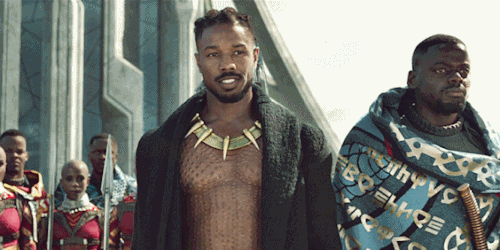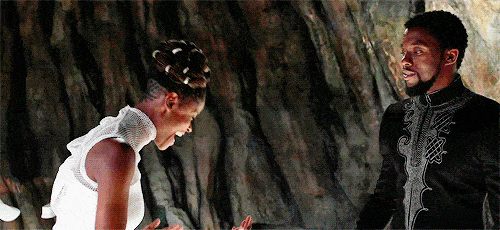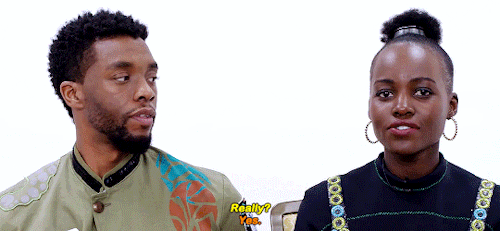"Black Panther" has proven to be a huge blockbuster hit this year, maybe even of all time.
You probably saw it, thought it was great, and thought Michael B. Jordan was lookin’ like a SNACK, but you still don’t really get it.
Here’s why.
When Ryan Coogler, the director and co-writer for Black Panther, was writing the story, he took the time to do a lot of research on African cultures (especially in the area) and, of course, with the black experience in the United States. The beauty of Black Panther is that they got so many things right. The accent work is poignant and pretty specific to the region of the world that it is claimed to be in. In addition to accent, the cultural costumes, the liveliness of the culture, the mysticism, and even the attitudes to parents, are all very true and accurate to African Culture (taken as a whole entity).
What I really want to talk about, is the dichotomy between Shuri, T’Challa, and Erik Killmonger (spoilers ahead).
The important thing about these three characters is that they show the plight and evolution of African countries in three forms. Both Killmonger’s and Shuri’s characters show the characters of Africans across borders, while T’Challa is the plight of a, somewhat, newer generation tasked with leading the country but not exactly knowing how.
Let’s break this down.
Killmonger represents a group of African people who were systematically and violently displaced, denied a home. Though his father is Wakandan, he has the marks and the birthright. However, he still lacks the fundamental piece that makes him Wakandan -- acceptance. He has constantly been denied that part of his identity. To the mind of the Wakandans, he is an outsider, and will always be.
Killmonger barely understands this idea, however, because he’s grown up in a society that forces a shared identity of skin color, regardless of ethnic or national background, he believed that simply being black should have been enough for the Wakandans to join sides with him and save other oppressed peoples-- as he says "their people"-- across the world.
I will introduce the caveat with this after I explain Shuri.
As a Cameroonian-American, I have grown up with a foot in both realms. When I see Americans wearing "Dashikis" and waist-beads, I often get annoyed.
Why do they feel like they’re entitled to that culture just because we share the same skin color? Do they really know what any of that means? Have they done their research on it?
When a culture exists, it can be appropriated, by anyone! And many other Africans feel the same thing-- a level of annoyance at the misuse of their culture. However, many Americans believe they're paying homage to their "lost homeland" with the gesture.
By the same coin, when I see other Africans using American culture because it’s cool, I get kind of offended as well. This comes because they, literally, have no clue what black people in the United States have gone through to get that culture, and yet they are still denied the right to partake in ours.
You’re probably looking for the caveat now.
T’Challa is the caveat. Both Shuri and Killmonger were willing to die to defend the rights of Wakandan culture. T’Challa, literally, (almost) died doing the same thing. It took a war for him to realize that, fundamentally, the world was going to see Black Americans and Wakandans the same: desolate, backward, and savage. The difference is Wakandans benefited from this ignorance, while Black Americans suffered for it. T’Challa finally breaks the cycle of ignoring "lost" members of their family.
Black Panther manages to effectively sum up, almost, 400 years of American-African relations in a 134-minute movie.
Still don’t get it? That’s okay, I’m not finished writing about it.




















